Here today, up and off to somewhere else tomorrow! Travel, change, interest, excitement! The whole world before you, and a horizon that's always changing! - Kenneth Grahame
27 February 2020, cell phone installation to unnamed settlement, 51.3km
Auberge (unnamed) UM200 (R80)
We slept cool and well, and were up early and on the road soon after coffee. We had little water left, and knew we would need to source some from someone as no shops were indicated on our planned 50km route. Not too anxious given that we are travelling the main road, but a little anxious.
As usual, we cycled past small tented settlements, each with a water bladder, and realised herein lay our salvation. At one “camp” were three or four tents, square with pointed roofs, one with a camel sitting on its haunches outside. A water bladder lay on the verge, but we were reluctant to simply take water without permission, so we hoo-hoo-ed, hoping someone was home.
A lone man emerged from a distant tent, dressed in a long, striped tunic. We waved our flask at him, pointing at the bladder. He gestured for us to wait, disappeared back into his tent, exiting shortly with a turban, which he wrapped around his bare head, and a plastic kettle in gay colours. [We have seen these kettles since entering Gabon. They come in various sizes and colours and seem to have several uses. Water for drinking, water for cooking, water for foot and hand washing before prayers, water for toilet ablutions (we see people exiting the bush with a kettle in hand; better than those who take bottled water into the bush or desert and simply discard the bottle…)] He then gathered up his camel, which had risen to its feet when we hoo-hoo-ed, and came across the sand toward us, not to the bladder, but to a couple of large plastic yellow water containers, also ubiquitous. He poured water from a yellow container into his kettle, and from there into our flask, filling with three or four pours our 1.5 litre flask. We asked, with sign language, if the water was OK for drinking, and he answered by tilting his head back, still squatting comfortably, and pouring water from the kettle into his mouth, his lips not touching the spout. He was the colour of walnuts, his eyes deeply wrinkled from the sun and wind and sand, his manner calm and competent. Once we had thanked him, he took the camel’s rein, crossed the road, and wandered off into the desert. We later drank every drop of his water, sweet and cool, and suffered no subsequent ills.
We saw camels etched black by the rising sun, silhouettes on a ridge on the horizon. And a group of 70 camels in the dunes to our left, ranging in colour from chocolate brownie to clotted cream. And nomads at home in their sandy world, herding camels and long-legged sheep. And three donkeys standing just off the road, ears pricked, eyes watchful, heads turning to track us on bodies held totally still. And dunes wind-rippled and pretty.
At a gendarme checkpoint, we again asked for water and were given three litres, their water less sweet than the nomad’s, and slightly chlorinated, but safe, of course, to drink. One of the gendarmes also pointed us to a shop in a hut, from which we excitedly bought something sweet and cool to drink immediately and to take with. Our passport details were recorded by a man sitting on the floor in a carpeted hut. A couple of the men wore reflective sunglasses in which we could see ourselves, and olive turbans wrapped around their heads and covering their lower faces. One man asked if he could take our photo, after which we asked if we could take his, resulting in Charl and I in a selfie with two gendarmes looking somewhat like bank robbers.
Several kms after we left the checkpoint, we encountered a man and young teenage boy walking down the road toward us. The man called out to Charl, asking if perhaps he had any water. Charl immediately stopped and pulled his recently-filled flask from its holder on the front fork. The teenager drank sparingly from it, the man refusing to partake. It seemed to us desert protocol: If in need, ask, but don’t take so much it leaves the donor with too little.
We had been aiming all day for the 177km distance marker, at which we had read there was a gendarme checkpoint and shop - it was here we planned to camp. But there was no gendarme checkpoint, something better, but no checkpoint. We have heard that checkpoints move on occasion, and thought this one had moved 25km south to our reflective-sunglasses friends, and that a temporary shop follows the gendarmes, ensured of their custom and that of the motorists stopped by them.
The something better at PK177, a tiny settlement of widely-spread huts, was an auberge, unmentioned by previous travellers along this stretch of road. And a shop. We did not realise there was an auberge until we had bought something to drink, then wandered across the road to find somewhere to pitch a tent out of the wind at the cell tower there. The shopkeeper followed us across to tell us she had an auberge. And thus we found ourselves in a basic room, out of sun and wind, with a shared loo-bucket bath room out back. And very luxurious indeed it seemed to us, despite incredibly thin mattresses and a nasty smell emanating from the plumbing, despite it being perfectly clean. We cooked on our little balcony, and admired the stars and new moon - a shape mimicked on the decoration atop our roof, and enjoyed the near-silence, and felt blessed.
A saddening incident… After our baths an before dinner, I went back to the shop to buy several drinks and water for the morrow and tissues and a couple of other supplies. The woman who had manned the shop in the afternoon was not there, and neither of the young girls present could add. One left, returning shortly with a man, whose ability to tot up our total was pretty incompetent, even using the calculator on his phone. In the end, I had to fetch pen and paper and my calculator and eyeglasses from our room to assist. The girls giggled throughout, and have not a hope in hell of doing adding any real value to their constrained lives.
For today's route see below photos
For overview route, click on ROUTE tab above…
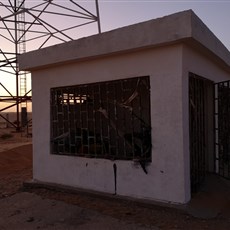
Cell tower to unnamed settlement - our campsite
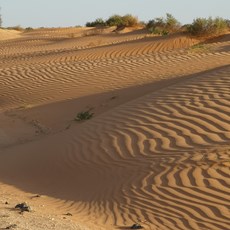
Cell tower to unnamed settlement
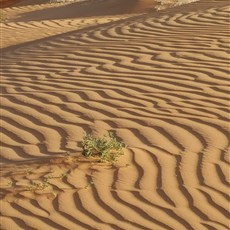
Cell tower to unnamed settlement
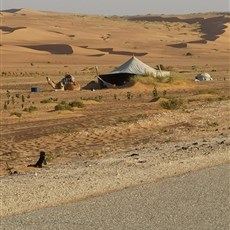
Cell tower to unnamed settlement
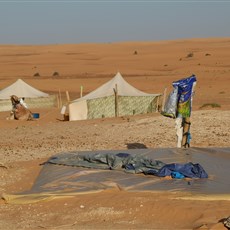
Cell tower to unnamed settlement
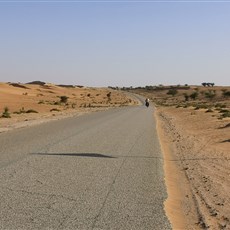
Cell tower to unnamed settlement
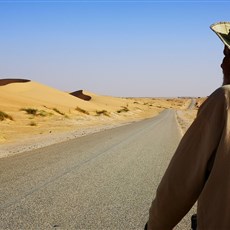
Cell tower to unnamed settlement
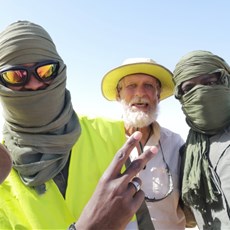
Cell tower to unnamed settlement
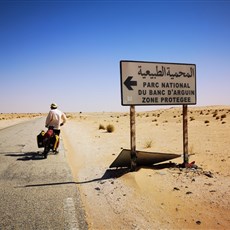
Cell tower to unnamed settlement
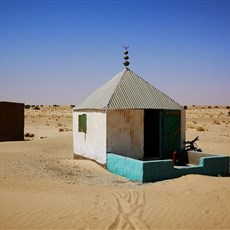
Unnamed auberge
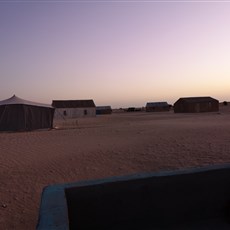
Unnamed settlement